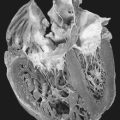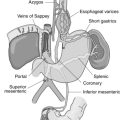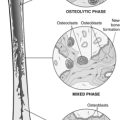22. Denervated (Transplanted) Heart
Definition
Denervated, or transplanted, heart is not a disease and is something of a misnomer. The denervated heart is a heart that has been donated and transplanted. In this case, “denervated” means the transplanted heart is not under the control of the recipient’s autonomic nervous system and brain; instead, the heart rate is determined completely by the intrinsic rate(s) of the allograft heart. The atrioventricular node is predominately the rate controller for this heart because the sinus node is often irreparably damaged in the transplant process.
Incidence
About 1% of the population with end-stage congestive heart failure receive a donor heart.
Etiology
Transplants are reserved for patients with end-stage congestive heart failure who have a prognosis of less than 1 year to survive without replacement of the damaged heart.
Indications for Cardiac Transplant
• Ability to comply with follow-up care
• Age <65 years
• Congenital heart disease
• Dilated cardiomyopathy
• Ejection fraction <25%
• Intractable angina
• Ischemic cardiomyopathy
• Malignant cardiac dysrhythmias
• Pulmonary vascular resistance <2 Wood units
Contraindications to Cardiac Transplant
• Active malignancy
• Active systemic disease (collagen vascular disease, sickle-cell disease, etc.)
• Active systemic infection
• Age >65 years
• Fixed pulmonary vascular resistance >4 Wood units
• Inability to comply with follow-up care
• Ongoing history of substance abuse
• Psychosocial instability
Signs and Symptoms
Not applicable.
Medical Management
The chief concern is rejection of the transplanted heart. Various transplant centers have differing regimens of medical care for the patient with a heart transplant. These include aggressive immunosuppression (both before and after transplantation), frequent cardiac biopsies to assess for signs of organ rejection, and frequent follow-up cardiology care. Immunosuppressant levels are monitored and dosages adjusted frequently to minimize the potential for allograft rejection and to reduce the detrimental side effects of the immunosuppressants themselves.
Signs of Allograft Rejection
• Edema of extremities
• Fatigue
• Fever
• Weight gain
Complications
• Acute rejection
• Allograft vascular disease
• Bleeding from suture lines
• Chronic rejection
• Infection
• Poor cardiac function
• Psychiatric disturbances
Anesthesia Implications
Cyclosporine is both nephro- and hepatotoxic, as well as being associated with hypertension. It is also known to lower the seizure threshold. Both renal and hepatic function should be carefully evaluated preoperatively.
Tacrolimus is also a nephrotoxic medication and has been reported to produce diabetes mellitus and hypertension.
Corticosteroid administration is associated with the development of osteoporosis and diabetes. Typically a perioperative dose of corticosteroid is needed preoperatively.
Beat-to-beat variability associated with respiratory efforts, physical activity, and vagal maneuvers is lost as a result of the transplantation process. As a result, the denervated heart will not react to the administration of atropine to treat bradycardia. Increasing the heart rate in this case will require administration of isoproterenol or by directly, artificially pacing the heart.
The denervated heart, specifically the SA and AV nodes, have been documented to be extremely sensitive to the effects of adenosine and theophylline.
Heart rate increases can be achieved by administration of catecholamines, but onset may be prolonged.
The denervated heart does not respond immediately to rapid changes in the systemic vascular resistance, as a “normal” heart would. Hypotension is poorly tolerated.
If the patient is 5 years or more post-transplantation, coronary artery disease should be given strong consideration because of the accelerated predisposition to this disease. Because of the interruption of sensory innervation during the transplantation process, the patient with a denervated heart may not experience angina in response to myocardial ischemia.







